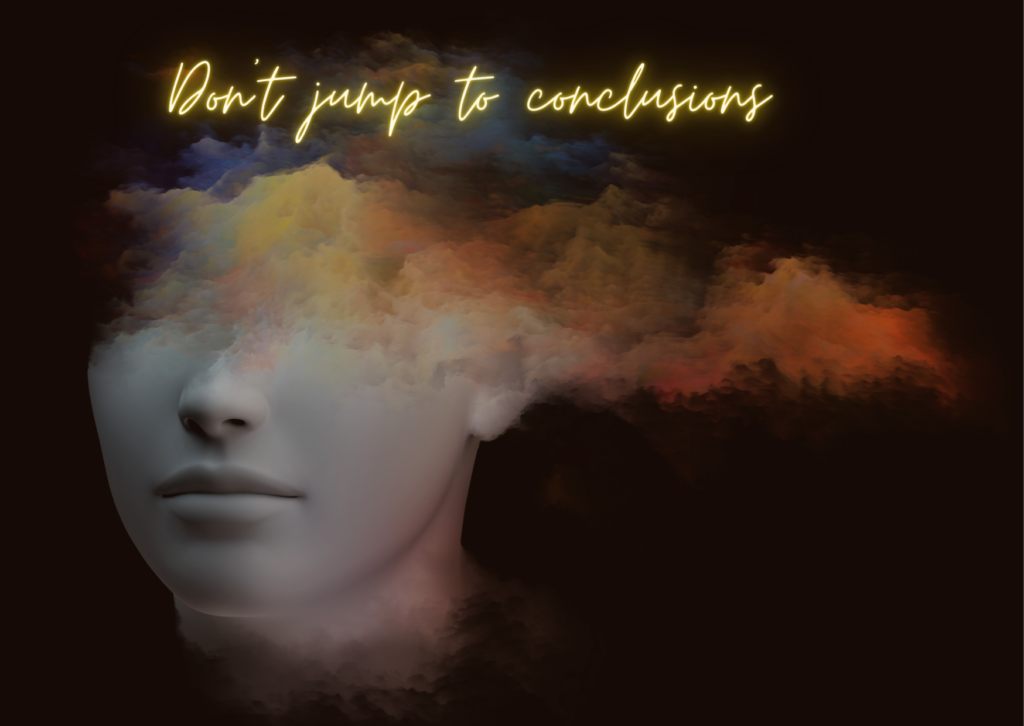
Do you ever find yourself making snap judgments without the evidence to back them up? If so, you’re not alone! Many of us fall into the trap of jumping to conclusions, and it can take a toll on our mental well-being. Jumping to conclusions is a cognitive distortion, a habitual way of thinking. A lot of individuals struggling with a low mood, often finds themselves trapped in this way of thinking. In this post, we’ll explore how this common thinking error can affect your mood and happiness and provide practical steps to overcome it.
Research in the Journal of Behavior Therapy and Experimental Psychiatry (2012) suggests that jumping to conclusions is associated with depression. People prone to this thinking style often make negative interpretations of ambiguous situations, leading to feelings of hopelessness and sadness.
The Pitfalls of Jumping to Conclusions
Jumping to conclusions without sufficient evidence can hinder our own progress. When we assume the worst, it can have a direct impact on our mental health, causing distress and psychological harm. This type of thinking error can affect our decision-making abilities and increase the risk of experiencing symptoms of depression, such as hopelessness and constant sadness.
Breaking Free from the Trap
Let’s explore how to break free from this pattern. Here are some steps to consider:
1. Become Aware: Start by keeping a thoughts diary for a few weeks. Take note of instances when you caught yourself jumping to conclusions. Record how it made you feel and the consequences of your assumptions.
2. Slow Down Next Time: Instead of immediately jumping to conclusions, pause. Take the time to carefully consider all aspects of the situation. Try to step back and look at the bigger picture rather than fixating on a single aspect.
3. Challenge Your Thinking: When you catch yourself making assumptions, challenge your thoughts. Ask yourself: Are there other explanations for this situation? What evidence supports the original conclusion? Can you put yourself in someone else’s shoes to understand their perspective?
Embrace Positive Change
Your journey to overcoming this thinking error is an opportunity for positive change. Remember that you’re so much more than your thoughts and have the potential to be your best self. By addressing this issue, you can experience more joy and less stress in your life. So, let’s jump for joy, not to conclusions!
written by Megan Stapelberg, Counselling psychologist
